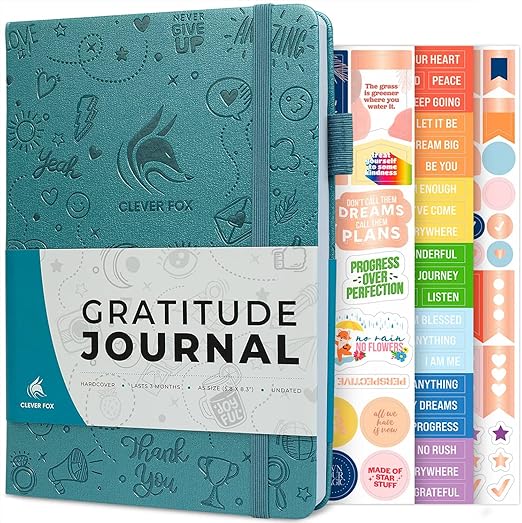6 Benefits of Journaling: Why Writing Can Transform Your Life
- mindbodybaja

- Nov 14, 2024
- 4 min read
Updated: Dec 14, 2024

Journaling is more than just putting pen to paper—it's a powerful practice that can improve your mental clarity, emotional well-being, and even physical health. Whether you're jotting down your thoughts in a notebook or typing into a digital journal, the act of recording your experiences and emotions helps you process life’s events and connect with your inner self.
If you’re looking for a simple yet effective habit to incorporate into your daily routine, here are six life-changing benefits of journaling:
1. Enhances Mental Clarity and Focus
One of the primary benefits of journaling is that it clears mental clutter, helping you focus on what truly matters. In our fast-paced world, our minds often race with an overload of thoughts, to-do lists, and worries. Writing these down organizes your thoughts, providing clarity and direction.
How It Works:
Organizes Your Thoughts: Journaling helps you prioritize and break down overwhelming tasks into manageable steps.
Improves Problem-Solving: By reflecting on your challenges, you gain new insights and ideas.
Increases Productivity: A clear mind allows you to focus better on tasks, boosting your efficiency.
Pro Tip:
Start your day with a "morning pages" session—a concept from Julia Cameron’s The Artist’s Way. Write three pages of free-flowing thoughts to declutter your mind and set your intentions for the day.
2. Reduces Stress and Anxiety
Journaling is a therapeutic outlet that helps you process and release negative emotions. Studies show that writing about your thoughts and feelings can lower stress levels, reduce anxiety, and improve overall emotional health.
Why It Works:
Externalizes Worries: Writing down your fears prevents them from circulating endlessly in your mind.
Promotes Mindfulness: Journaling forces you to slow down and focus on the present moment.
Regulates Emotions: By expressing your feelings on paper, you gain better control over your emotional responses.
Pro Tip:
Try a gratitude journal to shift your focus from worries to positive aspects of your life. Write three things you’re grateful for each day to cultivate a mindset of appreciation and reduce stress.
3. Boosts Creativity and Inspiration
Journaling is a playground for your imagination. It gives you a safe space to brainstorm ideas, explore new perspectives, and nurture creative thinking. Whether you’re an artist, writer, entrepreneur, or problem-solver, journaling can unlock your creative potential.
How It Helps:
Generates Ideas: Writing freely often leads to unexpected insights or "aha" moments.
Breaks Creative Blocks: Journaling removes mental barriers by encouraging unfiltered expression.
Develops New Skills: Regular writing hones your ability to communicate ideas effectively.
Pro Tip:
Use prompts to spark creativity. For example, ask yourself, “What’s one thing I’ve always wanted to create but haven’t started yet?”
4. Improves Emotional Intelligence
Emotional intelligence is the ability to understand and manage your own emotions while empathizing with others. Journaling helps you develop this skill by encouraging self-reflection and deeper emotional awareness.
Benefits of Emotional Growth Through Journaling:
Identifies Patterns: Journaling helps you recognize recurring thoughts or triggers.
Processes Difficult Emotions: Writing about anger, sadness, or fear provides a healthy outlet for those feelings.
Fosters Empathy: Reflecting on interactions with others can increase your understanding and compassion.
Pro Tip:
Keep a "feelings log." At the end of each day, write about how you felt and what triggered those emotions. Over time, you’ll notice patterns and learn how to better manage your emotional responses.
5. Strengthens Goal-Setting and Accountability
Journaling is a powerful tool for setting, tracking, and achieving goals. By documenting your aspirations, you create a roadmap to success and hold yourself accountable along the way.
How It Helps:
Clarifies Your Vision: Writing down your goals solidifies your intentions and makes them more tangible.
Tracks Progress: Regular journaling allows you to measure your growth and adjust your strategies.
Boosts Motivation: Seeing your progress in black and white reinforces your commitment to your goals.
Pro Tip:
Use your journal for goal-setting by writing down specific, measurable, achievable, relevant, and time-bound (SMART) objectives. Revisit these goals weekly to track progress and stay on course.
6. Supports Physical Health
Surprisingly, the benefits of journaling extend beyond mental and emotional health—it can also improve your physical well-being. Research shows that expressive writing can strengthen your immune system, lower blood pressure, and improve sleep quality.
Why It Works:
Reduces Stress Hormones: Journaling reduces cortisol levels, promoting relaxation and better health.
Encourages Healthy Habits: Writing about your health goals increases your commitment to exercise, diet, or other wellness practices.
Improves Sleep: Journaling before bed helps clear your mind, making it easier to fall asleep.
Pro Tip:
Try a "health journal" to track your physical well-being. Document your sleep patterns, exercise routines, and dietary habits, along with reflections on how you feel each day.
How to Start Journaling
Starting a journaling habit is easy and doesn’t require any special skills or equipment. Follow these simple steps to get started:
Choose Your Format: Decide whether you prefer a physical notebook, a digital journal, or an app.
Set Aside Time: Dedicate 10–15 minutes daily to writing. Morning or evening works best for most people.
Use Prompts: If you’re unsure where to start, use prompts like “What made me happy today?” or “What challenges did I face?”
Stay Consistent: Build journaling into your routine for long-term benefits.
Conclusion
Journaling is a transformative practice that can enhance your mental clarity, reduce stress, boost creativity, improve emotional intelligence, help you achieve goals, and even support your physical health. Whether you’re writing for five minutes a day or diving deep into introspection, the act of journaling can bring profound benefits to your life.
Start your journaling journey today—your future self will thank you!













Comments